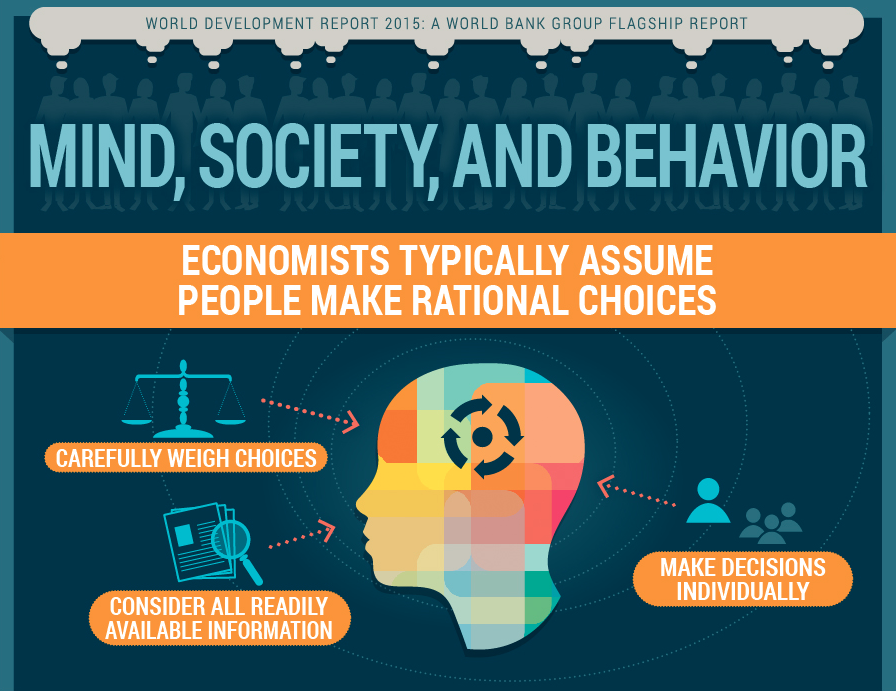WASHINGTON – Using human behavior research is key to a to solving development challenges, World Bank President Jim Yong Kim said Thursday in reviewing a new World Bank development policy for 2015.
The recently released flagship 2015 World Development Report emphasizes that understanding the social and psychological components of decision-making instead of relying on inaccurate pre-existing models will help governments achieve development goals more effectively.
Kim said his recent trip to West African served as yet another reminder that changing behavioral patterns was the most effective way to combat Ebola.
“It hit me like a ton of bricks,” he said. “The success of their response has everything to do with behavior from head of state to communities. I washed my hands with bleach 25 times, had my temperature taken 25 times… You call in all of the best experts and what you find is people who have most experience fighting the virus talk most about behavior change.”
Kim added that the report provides several cases of how development policies can be improved by studying human behavior in a systematic, rigorous manner.
David Halpern, chief executive of the Behavioral Insights Team at the World Bank, said governments have been using “naive accounts” to build economic policies based on the assumption that individuals make rational, consistent and well-informed decisions.
Karla Hoff, co-director of the 2015 World Development Report, highlighted a 20-year study in Jamaica that aimed to change the way mothers interacted with their infants.
Community health workers made weekly home visits to teach mothers how to play with and take care of their infants in ways that promoted cognitive and emotional development. When entering adulthood, those children were earning 25 percent more than those who did not participate in the program.
Hoff said that the mothers would have been working with a “false mental model” unless there was an intervention, and spoke of how the 2015 report expands the definition of poverty by addressing issues like “cognitive tax” instead of dealing solely with material deprivation.
“Behavioral science has advanced tremendously, the quality of data is so much better; we are an evidence-based institution and simply have to bring it into account, ” Kim said.
“This is an extremely exciting area for us to be effective in ending poverty.”


